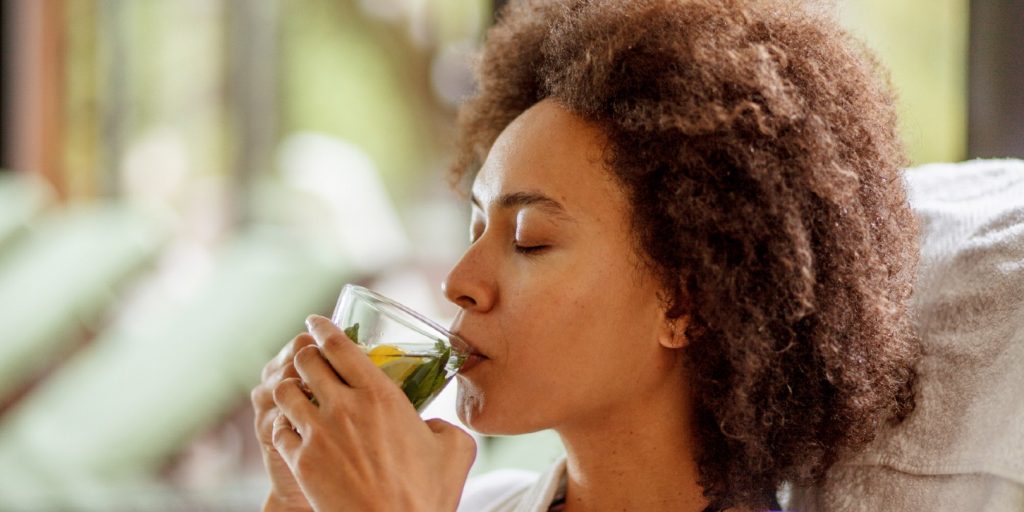Does Tea Dehydrate You? Here’s the Answer

There has been some debate about whether or not tea is hydrating. We’ve heard it all, from tea being seen as a diuretic to refreshing and rehydrating. So what is the truth? Does tea really dehydrate you?
In this article, we will cover everything you need to know about tea and how it affects dehydration. We’ll also take a close look at its different types so you can make an informed choice for your health. So, whether you’re a tea lover or want to know how to stay better hydrated, this post will clarify some misconceptions and answer your questions.
Overview of Tea and Dehydration
Tea is made by steeping tea plants’ leaves, buds, or twigs in boiling water. It can be served hot or cold. Different teas are available that vary in flavor, aroma, and color. Common types include black, green, oolong, and herbal teas like mullein leaf tea.
Dehydration occurs when there is a loss of water from the body. It can be caused by not drinking enough fluids or experiencing fluid loss due to sweating, urinating, or vomiting. Symptoms of dehydration include feeling thirsty, having a dry mouth, being dizzy or lightheaded, having dark yellow urine, feeling tired, and having dry skin.
Caffeinated Tea
Caffeinated teas like black tea have a diuretic effect on the body, meaning they can increase water loss through urination and reduce overall hydration levels. To avoid becoming dehydrated while drinking caffeinated tea, consume it in moderate amounts or drink other fluids alongside them, especially during periods of physical activity. We recommend drinking at least 8 cups of water each day alongside your caffeinated beverages to stay properly hydrated.
While consuming too much caffeine-containing tea can lead to dehydration, drinking it in moderation can provide several health benefits. Since caffeine-containing teas stimulate urination, toxins are released from the body more quickly. This can help feelings of fatigue and improve overall health.
Decaffeinated Tea
With a lower caffeine content than the previous type of tea, decaffeinated teas such as green tea still contain some caffeine content but do not have the same diuretic effect as black tea. They can still lead to some degree of dehydration if consumed in large amounts but are less likely to cause significant dehydration than caffeinated teas. For example, unless you drink more than 5 cups of green tea each day, you don’t need to take extra steps to increase your daily water intake.
As far as health benefits go, decaffeinated teas contain antioxidants that can help improve immune system function and promote healthy cells throughout the body. Drinking this type of tea in moderation alongside adequate amounts of water throughout the day can benefit your overall well-being.
Herbal Tea
Herbal teas, such as mullein leaf tea, do not contain caffeine. This means they can help rehydrate the body by increasing your water intake and replenishing electrolytes lost during exercise or other activities. Drinking herbal tea alongside regular amounts of water can actually help you stay more hydrated.
This type of tea can also have several health benefits, depending on which kind of herbal tea you drink. For example, mullein leaf tea uses an ancient herb that can help soothe symptoms of respiratory illness, like colds and coughs, and support your digestive health. A natural sedative compound in this tea can also help improve your sleep.
Conclusion
To sum it up, tea consumption can lead to dehydration depending on the type and amount consumed, as well as the existing hydration levels of the individual. By arming yourself with knowledge about tea and dehydration, you can make informed decisions about your beverage consumption and ensure you stay hydrated properly. Whether you are looking for tea as a refreshing thirst quencher or for its potential health benefits, understanding its effects on your hydration levels can help you make the best choice for your health and lifestyle.